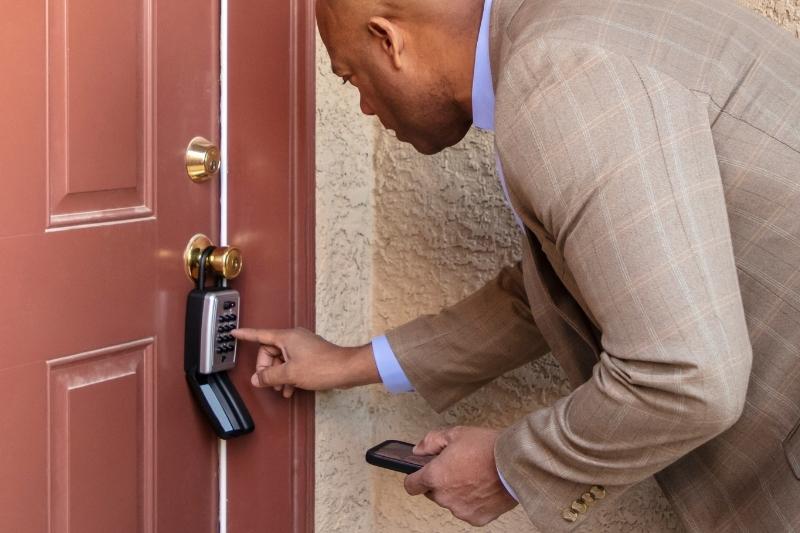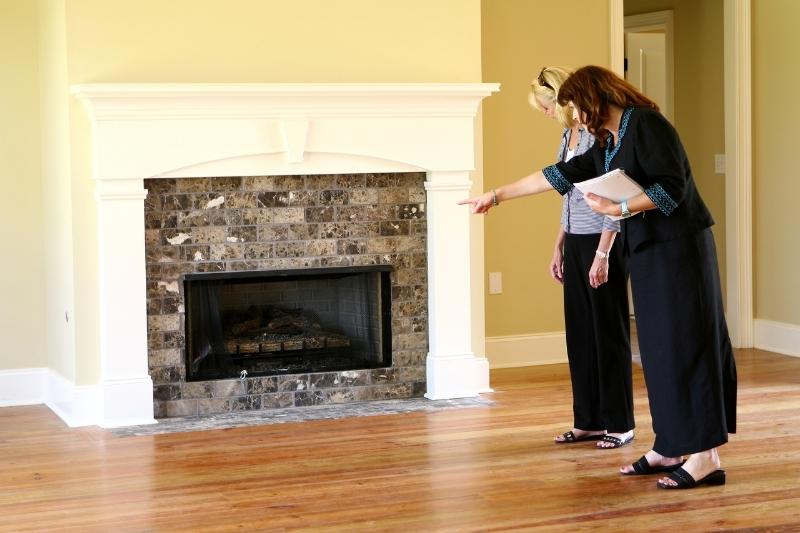|
Buying a home is huge milestone. Ensure that your buyers have a smooth closing day on the house of their dreams by taking a few important steps. Explore our top tips for real estate agents on completion date to practically guarantee future referrals. You’ve worked hard to get to the point where you finalize the sale on a home. Unfortunately, any missteps can cost you referrals and repeat business down the road. To make sure closing day is a success for both you and your clients, we’ve round up a list of tasks to practically guarantee a glowing referral. First, however, here's some basic information to help guide your clients through the process, so they know what to expect. What Is Closing Day on a House?The closing day on a house is the day the buyer legally becomes the owner of a new home. This date is mutually agreed upon and set by the buyer and the seller. Although typically, the agent will also work with the lender and title agency on this timeline to ensure that the date also allows them to complete things on their end. This meeting must fall on a regular business day and not on a weekend or holiday. Once decided, the date is then added to the purchase agreement contract. Is Closing Day the Same as Possession Date?The closing date, also known as the completion date, is when all the paperwork is signed and finalized. Funds are released and the title is transferred to the buyer. The possession date, on the other hand, does not always happen at closing. The possession date occurs when the buyer receives the keys to the home they purchased. This usually happens on the following business day to ensure that the transaction closes properly. In some cases, arrangements may be made between the buyer and seller that pushes out the possession date to allow additional time for the seller to move. If the possession date differs from the closing date, it should be laid out in the contract when the buyer can move in. How Long Does Closing Day on a House Take?In general, the entire closing process takes around 41 days, or between four and six weeks. However, this can vary. It’s also not uncommon for there to be closing delays for various reasons. While some delays can be avoided, others may be out of your control entirely. Reasons a Closing May Be DelayedThere are several reasons a closing may be delayed. These include issues with changes in credit or issues with lending, problems with the appraisal, issues with the home inspection, new damage discovered on the final walkthrough, or problems with paperwork. What Happens on Closing Day?On closing day, the transaction for buying a home is closed and the title transfers from the seller to the buyer. All loan documents get signed on closing day. While funds to purchase the home are also transferred on this date. A closing typically takes place at the office of the escrowee. This is generally the title company. The seller, closing agent and/or attorney, title company representative, mortgage lender and real estate agent are usually in attendance. If seller has already signed the deed prior to closing, they do not need to be present. The buyer should bring a photo ID to the closing along with any unsigned paperwork that the title company or mortgage loan officer will need. In addition, a certified or cashier’s check payable to the title or closing company for closing costs not deducted from the sale needs to also be included as all remaining closing cost are due at this time. In addition to paying closing costs listed in the Closing Disclosure provided by the lender, the seller will also sign the paperwork to transfer the ownership of property. While the buyer signs the settlement statement, the mortgage note, and the mortgage or deed of trust. Once these are signed, the title company can register the deed in the homebuyer’s name. What Happens if a Seller Refuses to Close? If the seller backs out of the contract for a reason or contingency not listed in the agreed upon contract, the buyer has several options. The buyer can force the sale by taking the seller to court. Unfortunately, this option can be timely and may present issues if the buyer is in a position where they need to move right away. Alternately, the buyer can sue the seller for breach of contract. In this instance, the seller may have to repay any number of costs including temporary housing and storage expenses as well as fees related to the sale such as surveys and home inspections. In some cases, the seller may also be on the hook for legal fees and court costs amassed by the buyer while seeking a resolution. Other solutions involve the buyer placing a lien on the property, the listing agent suing the seller, or there may be forced mediation. How to Make Closing Day a Success for You and Your ClientsBy preparing for closing day, you can ensure your buyers are able to move into their new home without a hitch. After all, no one wants last minute surprises that drag out the process. The more the client knows and understands the process, the better experience they will have. Tips on How to Prepare for Closing DayHere are our top tips to make sure your seller experiences a smooth transaction on the completion date. Let Buyers Know Not to Take Out Any New LoansTo avoid potential closing delays due to funds, it’s important to instruct buyers not to borrow additional money or open new credit cards once they’ve signed their contract. Doing so can cause changes to the borrower’s credit score which in turn may mean adjustments to the mortgage agreement. You should also check to be sure that buyers disclose all their financial obligations, including child support, as this can also have an impact on debt-to-income ratio. Create a ChecklistCreate and provide a closing checklist for you and your buyer to review. This helps to prepare for any closing contingencies such as a bad home inspection or issues with the appraisal. While surprises sometimes occur, preparing clients up front for all possibilities can help prevent a disappointing experience from turning into a disaster. Look Over All DocumentsYou should also check to ensure all documents are free from errors beforehand and that the title is clear. You should also review the preliminary settlement statement which can be obtained from the lender or the closing attorney. Confirm Repairs Are CompletedIf the seller is obligated to complete repairs to the home, make sure that these have been completed prior to the final walkthrough. You should also get copies of official receipts from the contractor(s.) Make Sure the Transfer of Utilities Is ScheduledCheck with the buyer to make sure they didn’t have any issues scheduling the transfer of utilities into their name for their move in date. We recommend providing the buyer with a list of local utilities for their convenience prior the closing. Our household reference magnets are a great way to provide this information to clients. Not only can they be customized with important phone numbers, but they also include your REALTOR® contact information for any follow-ups for referrals. Schedule a WalkthroughYou should schedule a final walkthrough of the home with your client several days before the closing. This allows you and the client to make sure any repairs needed have been completed, gives the buyer a chance to inspect all repairs that have been made, and ensures that the home is in the same condition as it was when the house went under contract. If repairs were significant, then we suggest asking the home inspector to double check those repairs to ensure they were done correctly and according to the contract. (Generally, there is a small fee for this service between $100-$250.) Send a ReminderTake the time to send out a text or email reminding the buyer of your upcoming closing 1 to 2 days ahead. This reminder should include the time and date of the closing, the address, and parking instructions. We also recommend that you remind clients what they need to bring, such as their driver’s license or photo ID. You can also share this information on your google calendar, so everyone is on the same page. Follow Up After the SaleOnce the sale is complete and you’ve successfully closed on a home, your work isn’t done. There are additional steps you can take to get a positive review as well as new referrals. According to a 2021 NAR report, 68% of sellers used an agent that was referred by a friend or family member. While 53% chose the same agent they worked with prior when buying or selling their home. Give a Closing GiftAs repeat business and referrals are so important to real estate agents, we strongly encourage you to give your clients a closing gift. This not only shows your appreciation, but it also can help you gain those referrals down the road. After all, a great customer experience is an easy way to gain fresh leads from those you’ve worked with in the past. We have lots of REALTOR® closing gift ideas here. Or check out our recommendation for the best closing gift for your clients. Send a Handwritten Card If a real estate closing gift isn’t within your budget, then mail a handwritten card instead. Minute Mail Gifts is an innovative greeting card service for businesses that allows you to send cards and gifts together — all for around $6 each! You can personalize your cards with your message in a handwritten font with a photograph for that special touch. (Don’t forget to take a photo of the new homeowners to use for the card!) Then, your card and gift are mailed for you on the date of your choosing. Minute Mail Gifts offers a full line of happy closing day cards to choose from to make a lasting and meaningful impact. Not sure what to write? Check out tips for writing your message and discover happy closing day quotes here. In addition, you can also use this service to stay in touch after the sale throughout the course of the year. Use it send personalized REALTOR® Christmas cards, real estate pop-bys, home anniversary cards, business birthday cards for clients, REALTOR® thank you cards, and thank you notes for a referral. How to Get More Real Estate Leads We hope that these tips help you provide the best experience possible for your clients. For more ways to generate real estate leads and referrals, be sure to check out these other posts:
Comments are closed.
|
Stay Connected© 2023 Stickers Plus, LTD | Privacy Policy
|
Contact |










 RSS Feed
RSS Feed